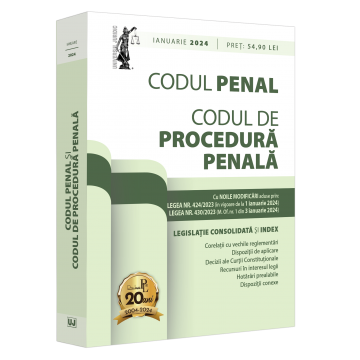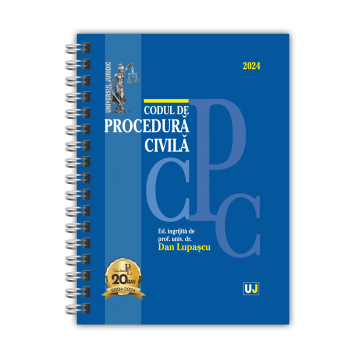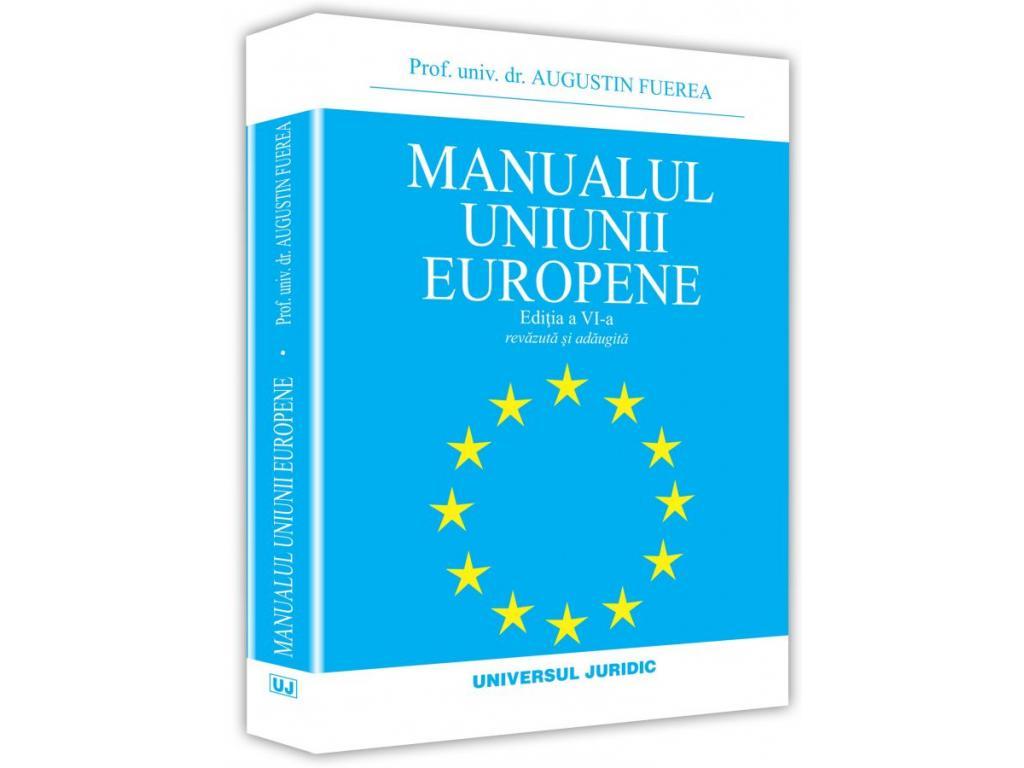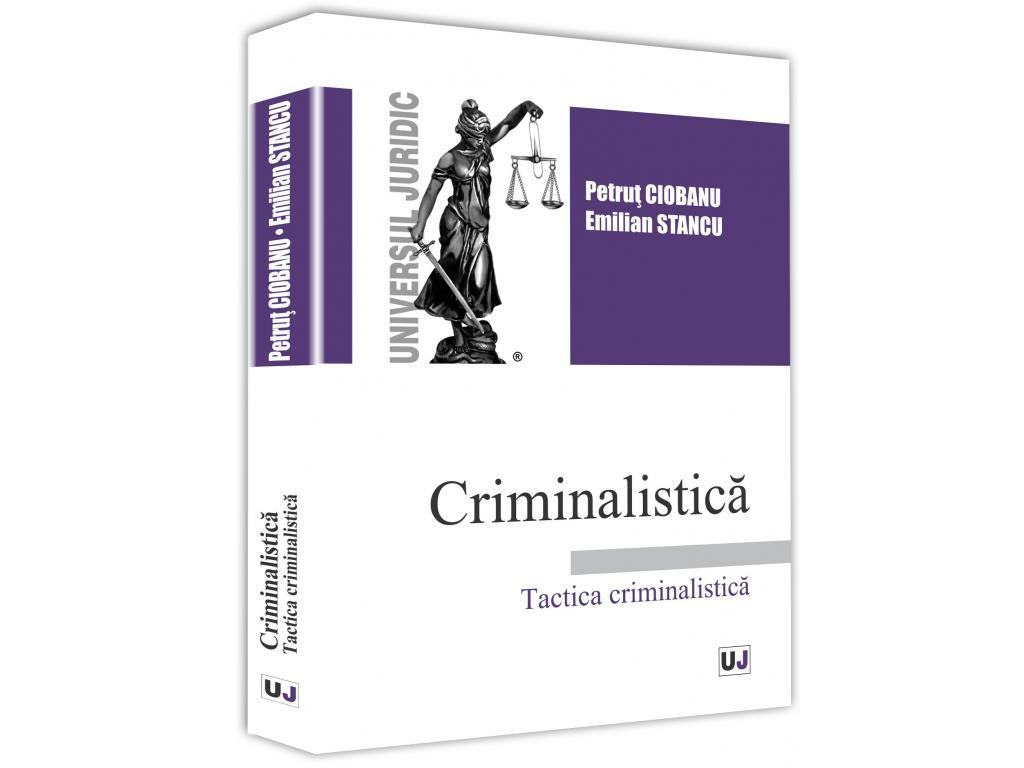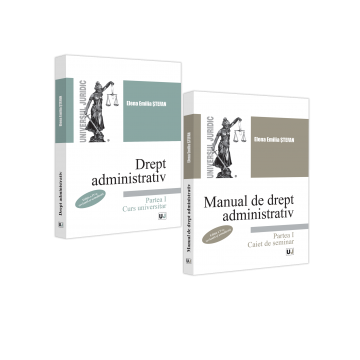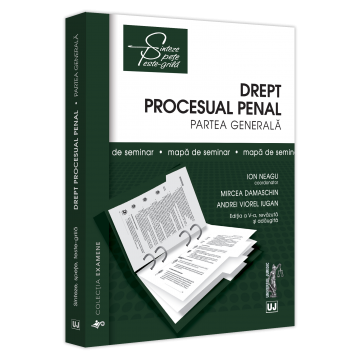6359.png) Relevant decisions of the Constitutional Court in the matter of the status of judges and prosecutors
Relevant decisions of the Constitutional Court in the matter of the status of judges and prosecutors
ISBN: 978-606-591-795-8
DOI: 10.5682/9786065917958
Publisher year: 2013
Edition: I
Pages: 181
Publisher: Editura Universitara
Author: Dragos Calin
- Description
- Download (1)
- Authors
- Content
- More details
- Where to find it
- Reviews (0)
The three volumes [Relevant decisions of the Constitutional Court in the matter of judicial organization, Relevant decisions of the Constitutional Court in the matter of the status of judges and prosecutors, Relevant decisions of the Constitutional Court in the matter of other legal professions (lawyers, notaries, legal advisers, bailiffs, media, staff auxiliary specialized courts and prosecutors' offices attached to them)] together for the first time together jurisprudence constitutional court with reference to the judicial organization and status of the legal profession.
Staff magistrates aims to ensure competence, independence and impartiality which legitimately anyone expects from the courts and from every judge to whom is entrusted the protection of their rights , and prosecutors stability . Meanwhile, the judiciary ensure independent courts and judges , requisite to the rule of law and a fundamental guarantee of a fair trial, the judiciary is one of the three pillars , equally important , of the rule of law, with legislative and executive . It must be independent in relation to society in general , and the parties to any dispute on the judges must decide . In addition , the legal profession is governed by the rules established by law in order to ensure a qualified legal aid those who wish to practice this profession are bound to obey the law and accept the rules imposed by it.
One such project is extremely useful for all legal professions , through the information provided , following on all fights and solutions Constitutional Court, the rule of law and the coordinates of the right to a fair trial, one of the principle components to ensure the rule of law in a democratic society.
The selection was made by Dragos Calin , Judge , Court of Appeals, the project is supported by the Association of Judges Forum in Romania .
-
Relevant decisions of the Constitutional Court in the matter of the status of judges and prosecutors
Download
Judge at the Bucharest Court of Appeal, trainer of the National Institute of Magistracy for continuous professional training European Union law, international judicial cooperation in civil and commercial matters, labor law and social insurance law; associate scientific researcher of the Institute of Legal Research of the Romanian Academy - Center for European Law Studies, director of the Journal of the Judges Forum, member of the scientific college of the journal Jurisclasor ECHR, co-editor of the Journal iaduer.ro - European Legal Affairs, founding member and co-president Romanian Judges Forum Association (2007-present), member of the GEMME Europe Board of Directors (May 2010-present), vice-president of GEMME Europe - European Grouping of Magistrates for Mediation (May 2010-May 2012), founding member of CIMJ International Conference on Mediation for Justice), October 2009, Paris
1. The support of the authors of the notification in the sense that the total lack of motivation of the court decision cannot be retained as a disciplinary violation, as it constitutes a ground for formulating an appeal against the respective court decision, is lacking legal basis. Disciplinary liability may be incurred in completely different conditions than those provided by law for the promotion of an appeal, which does not exclude, by plan, the employment of disciplinary liability of the judge for the same act / 15
2. Inadmissibility. The author does not formulate a real exception of unconstitutionality, being dissatisfied, in reality, with the way in which the state authorities, respectively the Prosecutor's Office attached to the Galati Court of Appeal, interpret and apply the provisions of art. 2 paragraph (3) of Law no. 303 / 2004, according to which "judges are independent, subject only to the law and must be impartial." / 43
3. The provisions of the first two paragraphs of art. 6 of Law no. 303/2004 are sufficient to ensure the proof of the moral and professional probity of the magistrates, as well as of the legal specialized personnel assimilated to the magistrates and the specialized auxiliary personnel, by imposing on them of the obligation to give an authentic statement, on one's own responsibility according to the criminal law, regarding the affiliation or non-affiliation as an agent or collaborator of the security bodies, as a political police / 45
4. The provisions of art. 21 of the Constitution, regarding the access to a court, do not have applicability in the matter of contesting the scale or the result of an examination or contest, having the obligation of the appeals commissions to rule on these requests. However, the provisions are applicable regarding the legality of the procedure for conducting the respective exam or competition / 48
5. In reality, the author of the exception claims that the contested text of law is unconstitutional because it omits from the list of persons who can be appointed in the judiciary, on the basis of a competition, those who have fulfilled the function of secretary of a commune. The Constitutional Court cannot modify or complete the legal provisions subject to the constitutionality control / 51
6. The fact that the Government Emergency Ordinance no. 46/2008 abrogated the legal provisions regulating the possibility of being appointed to the position of judge or prosecutor, without competition, is not likely to restrict the right to work or choice profession, fundamental rights guaranteed by art. 41 paragraph (1) of the Constitution, as the legislator has both the competence to regulate the conditions for holding certain positions or exercising certain professions, as well as the competence to modify or repeal them. / 53
7. The provisions of art. 33 paragraph (14) of Law no. 303/2004 establishes a difference of legal treatment regarding the graduates of the National Institute of Magistracy and those who became magistrates under the conditions of art. 33 paragraph (1), ie by promoting the competition organized for the position, fulfilling the general conditions provided by art. .14 paragraph (1) and of the special condition of seniority in the specialty, but respects the exigencies of the principles of equality and non-discrimination / 56
8. The restriction of the magistrates' right to promotion, by conditioning their seniority in the position of judge or prosecutor, is not unconstitutional, since art. 53 of the Constitution envisages the restriction in certain conditions, strictly specified in its content, of one or more fundamental rights, as they are enshrined and guaranteed in Title II of the Fundamental Law. Or, the right to promotion is not among them / 68
9. Since they were declared admitted to the competition for admission to the judiciary, it can only be assumed that all magistrates, regardless of the position in the legal field they had ‑ previously, have evolved and improved within certain benchmarks. similar professional qualifications, there being no reason for conferring a greater justification for promotion to courts or prosecutor's offices superior to a certain category, between magistrates, during professional development, there can be only possible discrepancies generated by the individual degree of training, no particular circumstances, previous admission to the magistracy. / 73
10. The decision to validate the results of the competition / exam for the appointment of prosecutors in management positions is an administrative one, which concerns the career of magistrates, and by no means jurisdictional. As the interpretation of the text of the law subject to control or even its completion is required, the exception of unconstitutionality is inadmissible / 77
11. The restriction of the magistrate's right to appeal the decision of revocation from the management position only in case the revocation was ordered as a disciplinary sanction obviously contradicts the provisions of art. 21 paragraph (1) of the Constitution, because no only in this case the magistrate is in a position to defend his legitimate rights and interests, but also in all other cases in which he considers that the measure taken against him is unjustified / 79
12. Compared to the premises of equal legal treatment, the exigency of fulfilling the function of judge in the last two years and, implicitly, at the date of the application for promotion to the High Court of Cassation and Justice constitutes an unjustified breaking of the balance between the two categories of magistrates. , a discrimination contrary to the Constitution / 84
13. The fact that the promotion of judges at the High Court of Cassation and Justice is made by the Superior Council of Magistracy through the selection procedure provided by art. 52 paragraph (1) of Law no. 303/2004 and not through competition is not of its nature infringes the impartiality of the judges of the supreme court / 87
14. Article 134 paragraph (1) of the Constitution provides for the attribution of the President of Romania to appoint judges and prosecutors, except for the trainees, at the proposal of the Superior Council of Magistracy. The participation of the President of Romania in the establishment of the judicial authority in this way agrees equally with the principle of balance of powers in the state, enshrined in Article 1 paragraph (4) of the Constitution, and is not likely to affect in any way the independence of judges, established by the provisions of art.124 paragraph (3) of the Constitution, and the exercise by the prosecutors of their attributions, respecting the principles of legality and impartiality provided in art.132 paragraph (1) of the Fundamental Law / 91
15. The legal provisions allowing the secondment of judges and prosecutors, with their written consent, to any position, including those of public dignity appointed, at the request of the respective institutions, as well as to institutions of the European Union or international organizations, are not of its nature. violates the constitutional norms regarding the incompatibilities of the position of judge or prosecutor, provided by art.125 paragraph (3) and art.132 paragraph (2) of the Constitution / 95
16. Article 62 paragraph (1) letter a) of Law no. 303/2004 provides that “the judge or prosecutor is suspended from office in the following cases: a) when the criminal action against him has been initiated by ordinance or indictment." This capacity of defendant does not represent a prejudice of the case and does not overturn the presumption of innocence provided in art. 23 paragraph (11) of the Constitution, according to which, "Until the final judgment of conviction, the person is considered innocent" . Also, the legitimate interests of the defendant are not prejudiced, who, like any part of the criminal process, can exercise their right to defense and can request the administration of any legal evidence to combat the allegations made in the accusation / 98
17. The specialized expertise is the only means by which it can be proved whether or not the magistrate in question suffers from a mental illness incompatible with the exercise of the function, so it cannot be retained that the provisions providing for such an expertise contradict the right to life and integrity. physical and mental, provided by art.22 paragraph (1) of the Constitution, or the right of the natural person to dispose of himself, provided by art.26 of the Constitution, or the right to health care, provided by art.34 of the Constitution / 100
18. Guarantees of the exercise of the right to work are provided in art.63 paragraph (2) and art.64 paragraph (3) of Law no.303 / 2004, according to which, if the removal from criminal prosecution is ordered, the cessation of the prosecution criminal charges, the payment or termination of the criminal proceedings against the judge or prosecutor, the suspension from office ceases, and he is reinstated in the previous situation, his monetary rights are paid which he was deprived of during the suspension from office and his seniority in the magistracy is recognized for this period, and during the period of suspension, the judge or prosecutor is paid the social health insurance rights, according to law / 104
19. The author of the exception, in reality, through his criticism tends to complete the text of art.67 paragraph (4) of Law no.303 / 2004, in the sense of introducing in its normative content and the category of legal advisers as an eligible legal profession to participate with the fulfillment of the seniority conditions at the competition for the appointment in the position of magistrate ‑ assistant degree III. Such a matter has to do with legislation, and not with constitutional review, the Court being a negative legislator / 107
20. The legislator, considering that, in case of transfer of prosecutors to the positions of judges, the condition of appointment by decree of the President of Romania is fulfilled, in art. 49 of Law no. 92/1992, republished, provided that “Oath taking is not necessary in the case of the transfer [...] ”. Magistrates have the obligation to take the oath before starting to exercise the position of judge or prosecutor / 109
21. The exception of unconstitutionality of the provisions of Title III “Rights and duties of judges and prosecutors” of Law no. 303/2004 on the status of judges and prosecutors, as formulated, is inadmissible, as it requires the completion of the criticized legal texts / 114
22. The appointment, promotion and evolution of the career of magistrate of military judges and prosecutors are made under the same conditions as in the case of magistrates from other courts and prosecutor's offices, and the quality of active military in the Ministry of National Defense does not lead to a relationship. subordination in terms of fulfilling their duties as magistrates / 115
23. The provisions of art. 80 paragraph (3) of Law no. 303/2004 stipulate that “The method of calculating the continuous seniority in the magistracy is established by the decision of the Superior Council of Magistracy”. This provision creates the possibility of calculating seniority in a way other than through the strict and restrictive interpretation of the term "continue". However, the Constitutional Court cannot rule on the calculation method established by the Superior Council of Magistracy, the provisions of art. 146 letter d) of the Constitution and of art. 29 paragraph (1) of Law no. 47/1992 limiting the competence of the Court, in the case of solving the exceptions of unconstitutionality, only under the control of the laws and ordinances of the Government / 119
24. The persons who retire from the position of judge or prosecutor, remaining in this position until the fulfillment of all the retirement conditions, those who, although they have passed in another activity, have in the position of judge or prosecutor a seniority of 20 years old or even 25 years old, is obviously in a different situation than the persons who at the date of fulfilling the retirement conditions are employed in other positions, and in the position of judge or prosecutor have not achieved a seniority for at least 25 or 20 years. The objectively different situation in which certain categories of persons find themselves justifies or even imposes the establishment by law of a reasonably differentiated legal treatment, without this representing privileges or discrimination / 121
25. The assertion that it is discriminatory to establish a minimum number of 20 years of effective seniority in the judiciary is not a true criticism of unconstitutionality, but a simple statement, as long as the author of the exception does not specify by comparison with the legal regime applicable to which social category the criticized legal texts would establish an inequality likely to violate the provisions of art. 16 paragraph (1) of the Constitution / 124
26. The allegations regarding an omission of the criticized text of law, namely the fact that the 10 years that can be taken into account in calculating the length of service required for granting the early service pension, according to the second sentence of 82 paragraph (2) of Law no. 303/2004, have in view only the period in which the profession of lawyer was exercised, and not other professions of legal specialty, in this case of legal advisor cannot be capitalized by way of the exception of unconstitutionality, which is inadmissible / 125
27. The provisions of art. 85 of Law no. 303/2004 regulate the seniority in the magistracy, respectively the functions performed which are included in this notion. Seniority in the judiciary is the basis for granting specific rights to this professional category, including the service pension for magistrates. This special type of pension has two components: a part paid from the social insurance funds from the public system and a part granted from the state budget. The period of university studies is taken into account when establishing the part of the pension due from the public social insurance system equally for all insured persons. However, the legislator chose, without violating any constitutional provision, in the sense that the period of legal studies should not be included in the calculation of seniority in the judiciary which is the basis for establishing the service pension / 127
28. According to the provisions of art.85 paragraph (3) of Law no.303 / 2004, the service pensions of judges and prosecutors are updated annually in relation to the average gross income achieved in the last 12 months by active judges and prosecutors. The updating of pensions according to the evolution of the level of basic salaries represents, in its essence, an operation subsequent to the establishment of pension rights and can be performed, obviously, only after the date of entry into force of the law granting this right. The criticized legal provisions do not exclude from the benefit of updating the pension any category of retired magistrates, not establishing discrimination between retired magistrates prior to the entry into force of the law and those retired after the entry into force of the law / 132
29. The provisions of art. 86 of Law no. 303/2004 have in view, exclusively, the assimilation of the period worked in another domain.niu of activity with seniority in the magistracy. The fact that only judges, prosecutors, legal staff or assistant magistrates benefit from this seniority is a consequence of the fact that Law no. 303/2004 concerns the status of judges and prosecutors, and not the categories of persons whose art. in the magistracy for the period in which they fulfilled the functions listed in this text / 135
30. The provisions of art. 95 and 97 of Law no. 303/2004, which regulates the possibility of any person to notify the Superior Council of Magistracy regarding the conduct of magistrates, do not establish an immunity regime for magistrates, but establish certain rules applicable to them in the case of violation of professional obligations or of committing certain crimes, without thereby violating the provisions of art. 16 paragraph (2) and of art. 21 paragraph (3) of the Constitution / 137
31. The provisions of art.95 paragraph (1) of Law no.303 / 2004, according to which judges, prosecutors and magistrates ‑ assistants may be searched, detained or arrested on remand only with the approval of the sections of the Superior Council of Magistracy, give expression to an attribution of of this body, established by its organic law, “in fulfilling its role of guarantor of the independence of justice”, therefore they are in accordance with the provisions of art.133 par. (1) and art.134 par. (4) of the Constitution / 142
32. The liability of magistrates established under the law does not remove their liability for the exercise of office in bad faith or gross negligence, and that the liability of the state is no longer limited to judicial errors in criminal matters, but concerns all judicial errors, regardless of nature the causes in which they were committed, thus extending the constitutional guarantee of this liability, and that the issue of judicial errors arises mainly in terms of reparations that society is obliged to grant to the one who has suffered unjustly from the errors committed in the judicial system, the constitutional provisions contained in art. 52 paragraph (3) enshrining the principle of objective liability of the state in such circumstances / 145
33. According to art. 52 paragraph (2) of the Constitution, the state's liability is established under the law, and the legislator regulated - through art. 96 paragraph (4) of Law no. 303/2004 - the conditions under which this is established. liability, among which is that requirement of the existence of a final decision establishing the criminal or disciplinary liability of the judge or prosecutor / 147
34. After the damage has been covered by an irrevocable decision, the State may file a recourse action against the judge or prosecutor, insofar as the respective judicial error is imputable to them, being caused by the exercise in bad faith or serious negligence of office. These constitute conditions for engaging the magistrate's liability towards the state, within the limits of the compensation to which the latter was obliged towards the victim of the judicial error, and not conditions of the direct liability of the respective magistrate towards the injured person / 150
35. The independence of the judiciary implies a special, adequate status of magistrates, meant to give an indisputable value to the act of justice, by protecting members of the judiciary against subjectivism and unjustified or abusive actions of the competent criminal prosecution bodies that could affect their credibility. . The criticized text of law, which conditions the investigation, detention, arrest, search or prosecution by the approval of the Minister of Justice, establishes a rational measure of protection of the magistrate, which is a legal guarantee of strengthening the constitutional principles stated above, regarding the independence of judges and impartiality of prosecutors / 153
36. The benefit of the service pension is granted for the quality of judge of the Constitutional Court, regardless of the moment of retirement of the person who holds or has held this quality. In these conditions, the differentiation made, through an interpretation that takes into account only the moment of reaching the retirement age during the mandate, creates an obvious discrimination between persons who are in the same legal situation / 157
37. While the status of judges is provided in section 1 “Courts”, the status of prosecutors is provided in section 2 ‑ of the “Public Ministry”. This distinction is not essential, as both sections are part of the same chapter entitled "Judicial Authority", but it is sufficient to allow the legislator to establish according to his will, taking into account the particularities of the two professional categories, the remuneration of judges and prosecutors / 163
38. Granting of salary rights, which do not belong to the sphere of rights and libfundamental rights, belongs to the exclusive option of the legislator. The reason for granting the increase of 15% of the monthly gross employment allowance to magistrates who hold the scientific title of doctor or teaching doctor is to encourage them to actively participate in scientific life, to improve their knowledge in a given field and to improve. professional performance at work / 165
39. The provisions of Article 10 paragraph (5) of the Government Emergency Ordinance no. 27/2006 on the remuneration and other rights of judges, prosecutors and other categories of personnel in the justice system are unconstitutional, insofar as they establish discrimination, in regarding the salary, between the members of the Superior Council of Magistracy with permanent activity and the members of the Superior Council of Magistracy without permanent activity / 167
40. The conferment of a superior position in the hierarchy of the prosecutor's offices was also determined by the possibility for the members of this structure to acquire the professional degree corresponding to the level of the prosecutor's office in which they operate. The legislator is free to derogate from the general rules of promotion, as long as the imposed legislative solution is objectively and rationally justified, and in this case such a situation is justifiable by advancing in the hierarchy of prosecutors of the D.I.I.C.O.T. / 173
41. The conferment of a superior position in the hierarchy of the prosecutor's offices was also determined by the possibility of the members of this structure to acquire the professional degree corresponding to the level of the prosecutor's office in which they operate. The legislator is free to derogate from the general rules of promotion, as long as the imposed legislative solution is objectively and rationally justified, and in this case such a situation is justifiable by advancing in the hierarchy of prosecutors of the D.N.A. / 173
42. The rationale of the law (art. 22 and art. 23 of the Government Emergency Ordinance no. 27/2006) is to come to the aid of persons holding the positions of judges, prosecutors, staff assimilated to them or magistrates ‑ assistants with the granting of facilities regarding the insurance of a house, insofar as they do not own personally, or through the family members, a house in the locality where they carry out their activity. Since, as noted above, this is not a fundamental right, the legislator was free to decide the limits and conditions for granting this benefit / 176
43. Judges, prosecutors and other categories of personnel in the justice system are in a different objective situation, which is why the legislator regulated their salaries and other rights through a special normative act, which provided special rules for challenging the manner of establishing the salary rights, as well as regarding the exercise of the remedies / 178
The three volumes [Relevant decisions of the Constitutional Court in the matter of judicial organization, Relevant decisions of the Constitutional Court in the matter of the status of judges and prosecutors, Relevant decisions of the Constitutional Court in the matter of other legal professions (lawyers, notaries, legal advisers, bailiffs, media, staff auxiliary specialized courts and prosecutors' offices attached to them)] together for the first time together jurisprudence constitutional court with reference to the judicial organization and status of the legal profession.
Staff magistrates aims to ensure competence, independence and impartiality which legitimately anyone expects from the courts and from every judge to whom is entrusted the protection of their rights , and prosecutors stability . Meanwhile, the judiciary ensure independent courts and judges , requisite to the rule of law and a fundamental guarantee of a fair trial, the judiciary is one of the three pillars , equally important , of the rule of law, with legislative and executive . It must be independent in relation to society in general , and the parties to any dispute on the judges must decide . In addition , the legal profession is governed by the rules established by law in order to ensure a qualified legal aid those who wish to practice this profession are bound to obey the law and accept the rules imposed by it.
One such project is extremely useful for all legal professions , through the information provided , following on all fights and solutions Constitutional Court, the rule of law and the coordinates of the right to a fair trial, one of the principle components to ensure the rule of law in a democratic society.
The selection was made by Dragos Calin , Judge , Court of Appeals, the project is supported by the Association of Judges Forum in Romania .
Customer Support Monday - Friday, between 8.00 - 16.00
0745 200 718 0745 200 357 comenzi@editurauniversitara.ro
![Relevant decisions of the Constitutional Court in the matter of the status of judges and prosecutors [1] Relevant decisions of the Constitutional Court in the matter of the status of judges and prosecutors [1]](https://gomagcdn.ro/domains/editurauniversitara.ro/files/product/large/decizii-relevante-ale-curtii-constitutionale-in-materia-statutului-judecatorilor-si-procurorilor-1262-910986.jpg)
